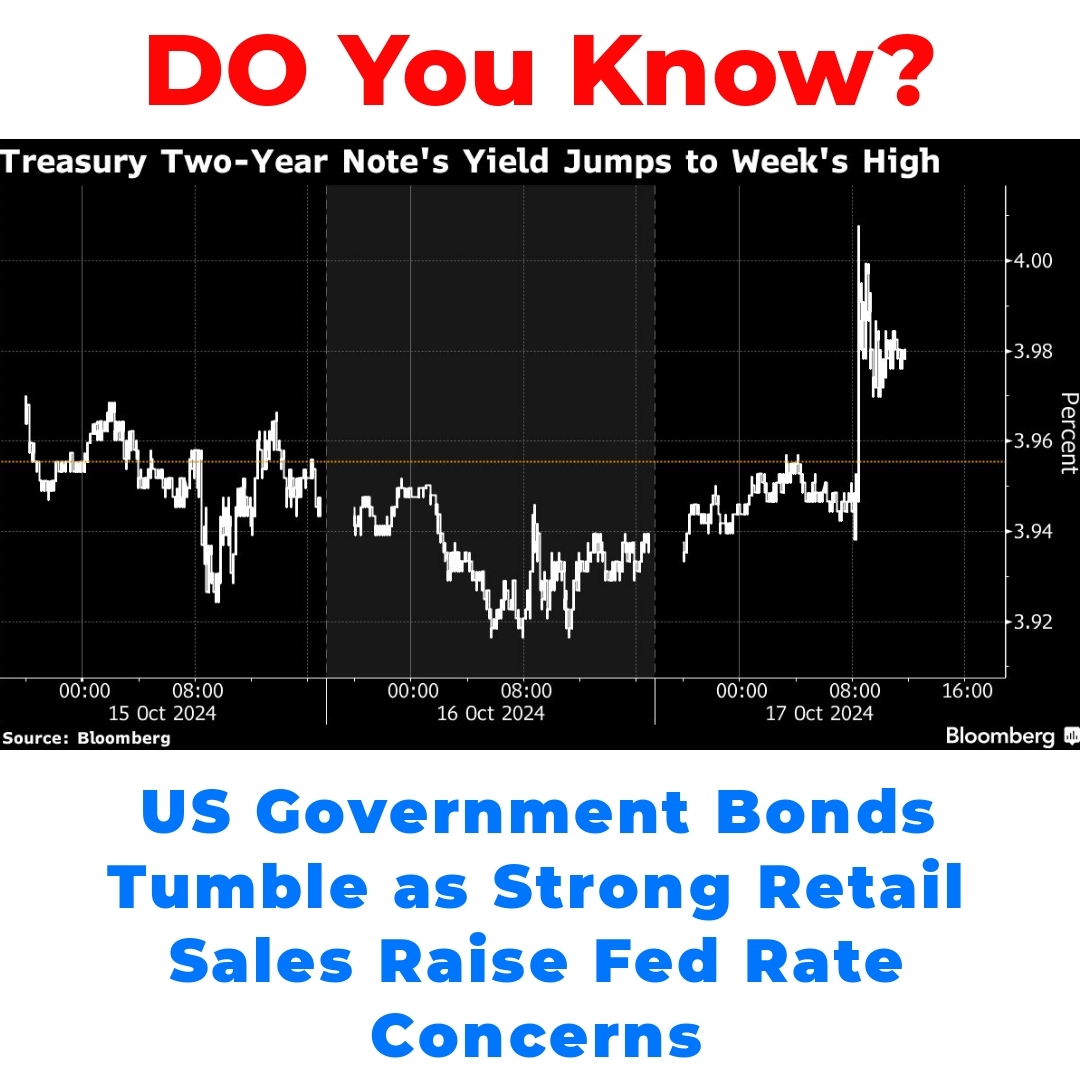US government bonds play a crucial role in the financial market, serving as a safe investment and government financing tool. This article explores the relationship between strong September retail sales figures and US government bonds, highlighting how such retail trends may influence Federal Reserve interest rate strategies and impact the bond market.


Understanding US Government Bonds
US government bonds are essentially loans that investors give to the government. When you buy a US government bond, you’re lending money to the federal government for a certain period of time in exchange for regular interest payments and the return of the bond’s face value when it matures. These bonds are considered one of the safest investments you can make because they are backed by the full faith and credit of the U.S. government.
The main roles of US government bonds include acting as a reliable investment option for both individuals and institutions and serving as a tool for the government to finance its activities. Government bonds help fund everything from public services to infrastructure projects.
The September Retail Sales Surge
In September 2023, the retail sales figures showed a notable increase, signaling robust consumer spending. This surge in retail sales isn’t just a number; it’s a crucial economic indicator. Higher retail sales mean that consumers feel confident about their finances, which is usually a good sign for the overall economy.
When people spend more money, businesses thrive, jobs are created, and the economy grows. This, in turn, leads to discussions among economists and policymakers about the health of the economy and its future trajectory.
The Federal Reserve’s Influence on Interest Rates
The Federal Reserve, often referred to simply as the Fed, plays a critical role in managing interest rates in the U.S. economy. In September 2023, the Fed was in a position where they were contemplating potential interest rate cuts. The strong retail sales figures likely raised eyebrows at the Fed meetings, as they could indicate that the economy might not need additional stimulus at this moment.
The Fed uses interest rates as a tool to control inflation and regulate economic growth. When retail sales are strong, there’s a tendency for the Fed to keep interest rates steady or consider adjustments rather than rushing to cut them.
How Retail Sales Figures Influence Bond Prices
There’s a significant relationship between retail sales and US government bonds. When retail sales rise, it often implies a strong economic backdrop, leading investors to seek higher yields in the bond market. This increased demand can drive bond prices lower, resulting in higher yields.
So, how do these retail sales figures translate to the bond market? Basically, strong sales tend to convince investors that the economy is healthy, prompting them to shift their portfolios, searching for better returns elsewhere. As money flows out of bonds and into riskier assets, bond yields rise, reflecting investor sentiment.
The Outlook for Interest Rates and Inflation
Looking ahead, the implications of robust retail sales extend into the inflation outlook. Should consumer spending continue at this pace, inflation could rise, potentially compromising the Fed’s motivation to implement more aggressive interest rate cuts. If inflation is on the rise, the Fed might decide to pause or even reverse course on any planned rate cuts, keeping interest levels higher for longer.
Investors in US government bonds need to factor in these economic indicators when considering their next moves. The fluctuation of interest rates will directly affect bond prices and yields, impacting returns for bondholders.
Conclusion
To sum it all up, the interaction between strong September retail sales, the Federal Reserve’s interest rate decisions, and US government bonds creates a fascinating dynamic in the financial markets. A rise in retail sales can lead to increased confidence in the economy but can also stir concerns about inflation and future interest rate policies.
As investors navigate this evolving landscape, understanding these relationships will be key to making informed decisions about US government bonds and managing portfolios effectively in light of changing economic conditions. Whether you’re a seasoned investor or just starting out, keeping an eye on retail sales trends and their influence on the bond market can provide valuable insights for your investment strategy.
FAQ About US Government Bonds
What are US government bonds?
US government bonds are loans that investors make to the federal government. When you purchase a bond, you lend money in exchange for regular interest payments and the return of the bond’s face value upon maturity. They are considered safe investments as they are backed by the U.S. government’s credit.
What is the primary purpose of US government bonds?
The main purpose of US government bonds is to provide a reliable investment option while helping the government finance various activities, such as public services and infrastructure projects.
Why are US government bonds considered a safe investment?
They are deemed safe because they are backed by the full faith and credit of the U.S. government, making the likelihood of default very low.
How do retail sales figures impact government bonds?
When retail sales increase, it often signals a strong economy. This can lead investors to seek higher yields elsewhere, resulting in lower bond prices and higher yields.
What is the Federal Reserve’s role in relation to bonds?
The Federal Reserve influences interest rates, which can affect bond prices and yields. Strong retail sales figures may impact the Fed’s decisions about interest rates, potentially affecting the bond market.
How do rising interest rates affect bond prices?
As interest rates increase, existing bond prices typically decrease. Investors may move to seek higher yields, causing bond prices to drop as they adjust to the new rate environment.
What should investors consider regarding inflation?
Investors should monitor inflation trends, as rising inflation can influence the Federal Reserve’s interest rate policies, which in turn affects bond pricing and yields.





